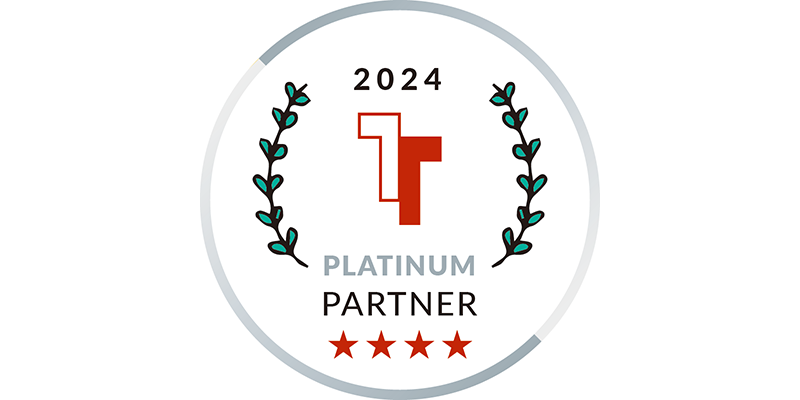To measure the social impact of our efforts, we use the Business for Societal Impact (B4SI)* Framework provided by Corporate Citizenship. In 2023, we invested US$50 million (6.7% charitable donations, 93.0% community investment, and 0.3% commercial initiatives) in corporate community investment in countries where we operate. We encourage more accurate reporting and measurement to ensure all of our programs deliver social impact according to our policy.
Community investment
For our Group to grow sustainably, it is vital for us to contribute to the sustainable development of our society. Our JT Group Community Investment Policy determines a common goal across the JT Group: “To contribute to the development of inclusive and sustainable communities.” We believe that everyone should have the opportunity to participate in society, and that inclusive societies are better for business. In line with our community investment policy, and as a responsible local community member, we work with a wide range of stakeholders to resolve social issues.
Our focus areas
Through long-term partnerships with various stakeholders, we are currently implementing 513 community programs that contribute to the development of inclusive and sustainable societies across 97 countries. Our offices around the world carry out programs aligned with our JT Group Community Investment Policy.
Through our programs, we are focusing on three specific issues:
1. Reducing inequalities, e.g., helping underprivileged people gain access to food and education
2. Improving community resilience in disaster-prone areas, e.g., providing access to clean water
3. Protecting the environment, e.g., protecting and reinvigorating forests and green public spaces
We also offer volunteering opportunities, enabling employees to engage with our communities, develop new skills, and gain a sense of pride and satisfaction.
In our tobacco business, global community investment functions help to implement the programs and ensure that they comply with our strategy and guidelines.
Target
-
Between 2015 and 2030 we will invest US$600 million to help make communities inclusive and resilient, with our employees contributing 300,000 volunteering hours.
Progress
-
In 2023, we invested about US$50 million and volunteered 24,549 hours.
Since 2015, we invested US$500 million in our communities and employees volunteered 218,070 hours on company time.
Measurement and management

* B4SI is the global standard in measuring and managing corporate social impact.
Contributing to our communities
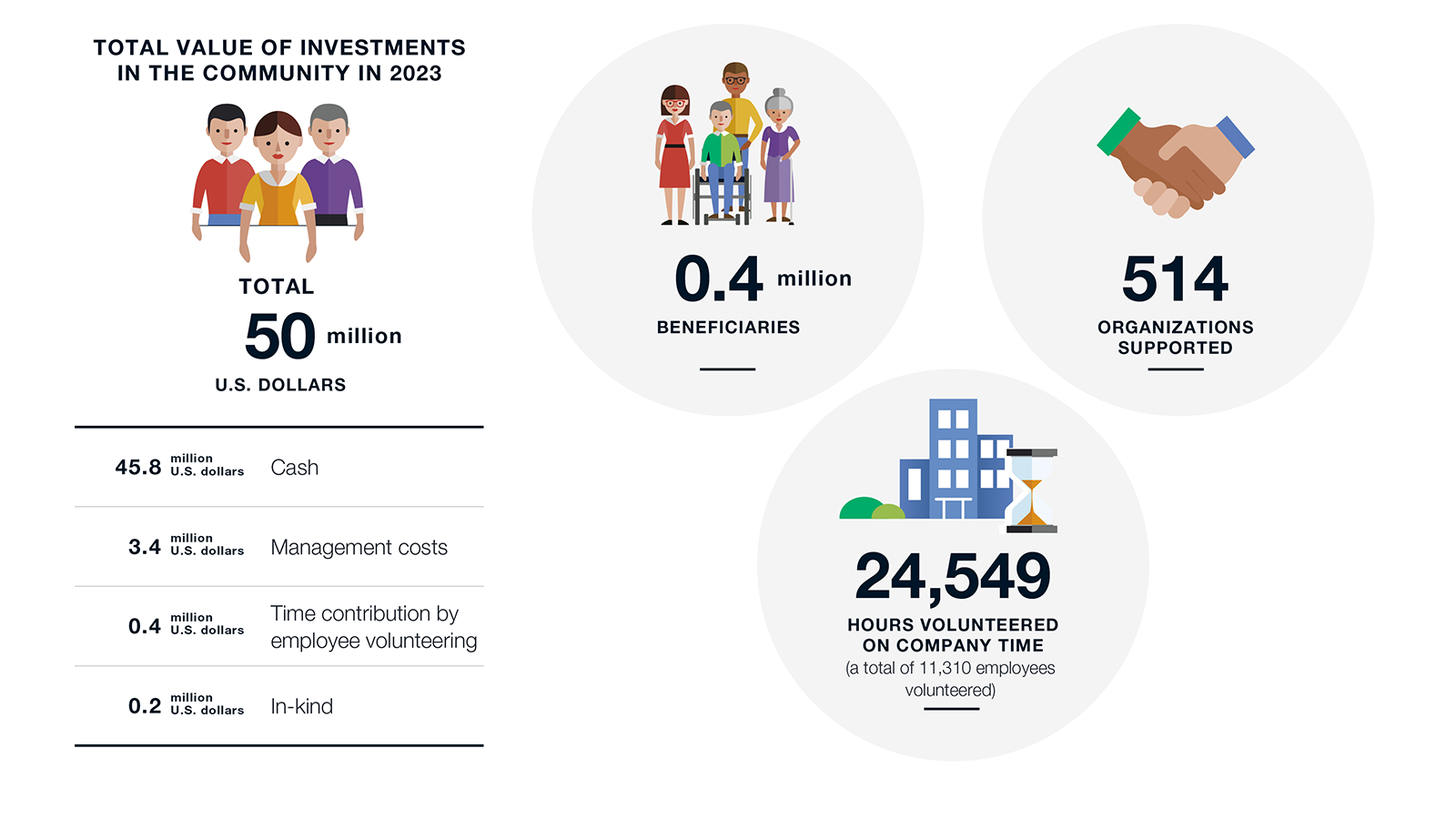
Our initiatives
Reducing inequalities
We’re committed to ensuring that the most vulnerable and excluded people can participate in society and have their voices heard. That’s why we work with charities that support adult education, people with disabilities, older people, and other disadvantaged members of society.
In many communities, the things that most of us take for granted - clean water, food, literacy, education - are not readily attainable. We want to change that as best we can for the communities we interact with around the world.
In 2023, we supported 402 programs in 51 countries where we operate. Among these countries, 10 reported impact data according to the B4SI Framework for programs related to “reducing inequalities.”
Case study
OrchLab: making a difference by making music
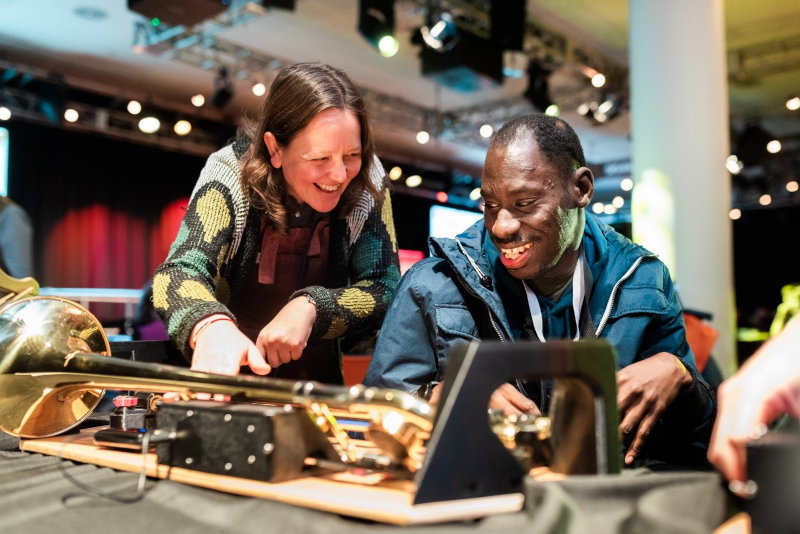
Our UK team has joined forces with the world-renowned London Philharmonic Orchestra (LPO) to support music-making and music appreciation with disabled adults. This unique project, called OrchLab, is run by the LPO in partnership with Drake Music, experts in music, technology, and disability. OrchLab uses accessible instruments, pioneering assistive technology, LPO recordings, and playable online instruments to enable participants to immerse themselves in the orchestra’s music whilst making it their own.
OrchLab offers innovative digital instruments, bespoke workshops, training and events, and the interactive website where participants can listen to and discover LPO performances, make their own music using playable online instruments, and access additional resources including musical games and quizzes. The aim of the project is to enhance participants’ well-being through music-making that is truly accessible to all.
OrchLab has worked intensively with 169 disabled adults since it began in 2017. In 2023, 19 people took part in an average of 26 hours of musical workshops, with 87% of participants reporting positive impacts on their skills, quality of life or well-being.
In 2023, we celebrated the third in-person OrchLab Festival Day, with the event livestreamed for greater inclusion and participation. In total, the day brought together 122 disabled guests and care staff to try out new OrchLab instruments and share the experience of making music with others.
Improving community resilience
Our company has built expertise in disaster management over the years, due to the environmentally vulnerable geolocation of Japan. In 2023, we supported a total of 57 programs in 17 countries, benefiting 58,890 people worldwide.
In regions prone to disaster, the strength and sustainability of communities doesn’t rely solely on their ability to respond to disasters in the short term - it also depends on their resilience.
Community resilience means being able to adapt positively after a disaster, bouncing back so that they can continue to develop and grow stronger over the long term.
In our tobacco business, we help communities achieve this largely through the work of the JTI Foundation and markets-driven programs. We engage closely with partners and charities that respond to disasters, helping to revitalize communities so they can be more resilient in the future.
Read more about the JTI Foundation on the JT International sustainability website.
Case study
Winds of change
Peace Winds Japan (PWJ) is an international non-governmental organization dedicated to supporting people in distress and those threatened by conflict, poverty, or other turmoil. Although headquartered in Japan, PWJ operates around the world.
In Japan, we have partnered with PWJ since 2016 as part of our disaster management policy. In 2022, our collaboration was extended for three more years to foster the development of search and rescue teams and to support PWJ’s response to disaster-stricken areas all around the world in the event of a disaster.
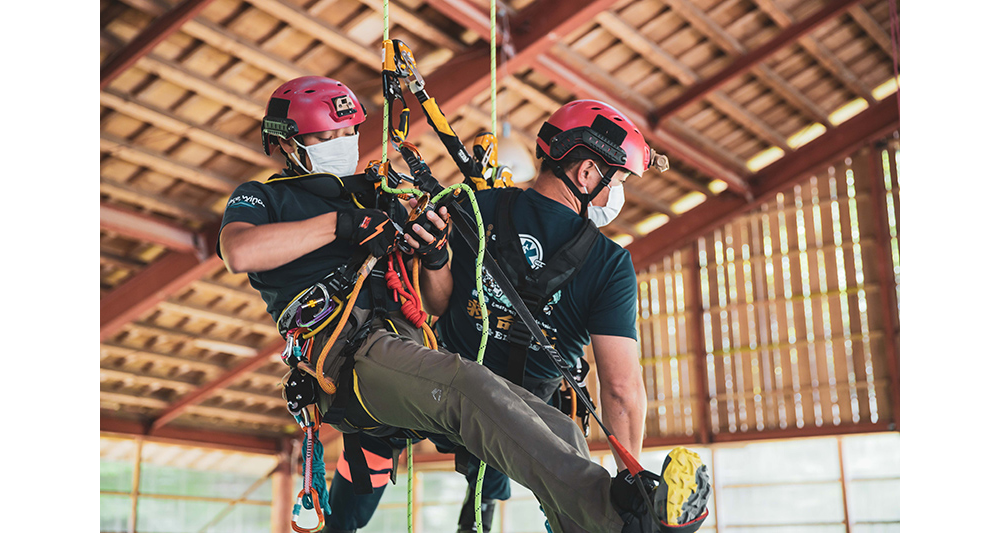
Over the three years, we will be supporting initiatives in the following areas:
- Training and developing search and rescue (SAR) teams, including some that work with SAR dogs
- Building a collaborative structure with SAR partner organizations overseas through joint training in preparation of future disasters
-
Strengthening relationships with stakeholders in Japan by:
- Setting up support agreements with local governments and hospitals at risk of being affected by disasters
- Building partnerships with supporting organizations and medical personnel
- Strengthening logistics capabilities and developing lifesaving equipment
- Organizing a logistics system and practical training for the setup of a multi-institutional field hospital
- Coordinating emergency supply transportation and rapid support activities in response to local information from PWJ in the event of a disaster
We hope that this initiative will help strengthen resilience-building all around the world. We will continue to work with a wide range of stakeholders to resolve issues in the area of disaster prevention as a priority within our community investment pillar.
Protecting the environment
We try to reduce the environmental impact of our operations wherever we can, through environmental programs that benefit both communities and our employees. In 2023, we supported 52 environmental programs in 20 countries where we have a business presence.
It is important that we measure the impact of our actions so that we can continually improve our programs. In 2023, 10 countries reported impact data according to the B4SI Framework for programs related to “environmental protection.”
In Japan, we are actively supporting the sustainable maintenance of nine forests. Employees have the opportunity to volunteer in these forests and help to preserve these precious natural habitats. In 2023, 506 employees volunteered their time. Many of these employees reported that volunteering had a significant impact on their behavior towards the environment and their job satisfaction.

Feedback from employees volunteering at JT Forest
- 94% reported an increase in job satisfaction through volunteering
- 74% would like to change their behavior and move towards a more sustainable use of natural resources
- 82% reported that volunteering helped them to gain skills that are useful in their daily work
Other initiatives
The JTI Global WASH (water, sanitation, and hygiene) initiative
Target
-
We are investing up to US$20 million to enable adequate and affordable access to safe and clean water and sanitation for one million people by 2025.
In a spirit of solidarity between mature and emerging markets, the top 10 markets in JTI set up a fund to help new and developing markets make communities more inclusive and resilient. Not only does this create a better balance of community investment presence across the company, it also gives a significant boost to communities in need of help.
The JTI Global WASH (water, sanitation, and hygiene) initiative focuses on providing and/or improving access to safe water and sanitation in communities that struggle with this issue. Since 2019, local teams have launched 10 projects as part of this initiative benefiting communities in countries diverse as Bangladesh, Mexico, Ethiopia, Indonesia, Bolivia, Morocco and Kazakhstan.
We are working with international and local organizations that specialize in WASH-related projects, and we promote innovative concepts that offer the best solutions for local communities and their needs.
Read more about the JTI Global WASH initiative on the JT International sustainability website.
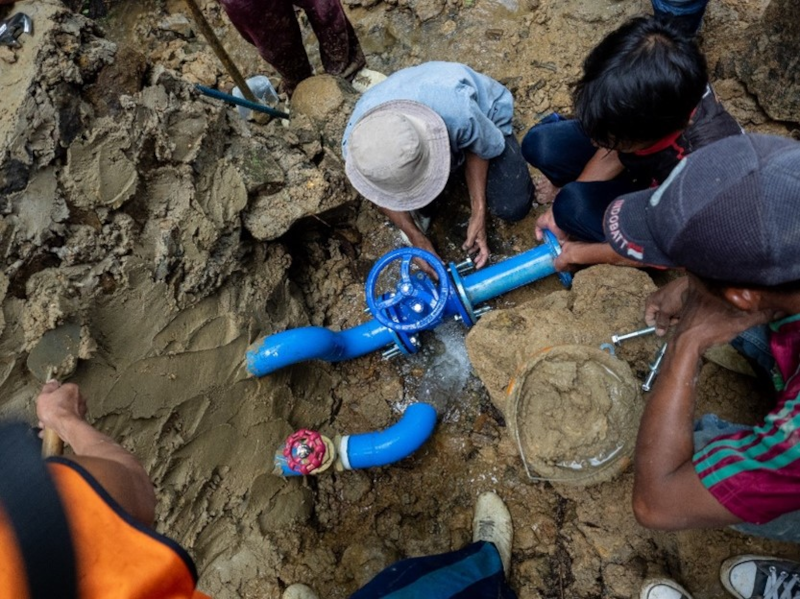
Volunteering opportunities
Volunteering brings mutual benefits for employees, our business, and the community. It also enables our teams to make a positive impact in the communities where they live and work by sharing their skills and knowledge.
We actively encourage our employees to take part in volunteering activities. We do this by organizing programs and events or by providing the necessary resources (funds through corporate matching, employee time, in kind, or employee donations).
In 2023, 11,310 employees worldwide spent 24,549 hours of company time supporting community programs.
Our many volunteering opportunities also support our HR initiative to build employees’ engagement and skills. In 2023, we conducted surveys among employees who participated in company volunteering activities related to “reducing inequalities” (one of the three focus areas of our community investment program). A total of 1,882 employees reported that these activities had helped them to gain skills that were useful in their daily work, as well as increased job satisfaction and a stronger interest in volunteering.
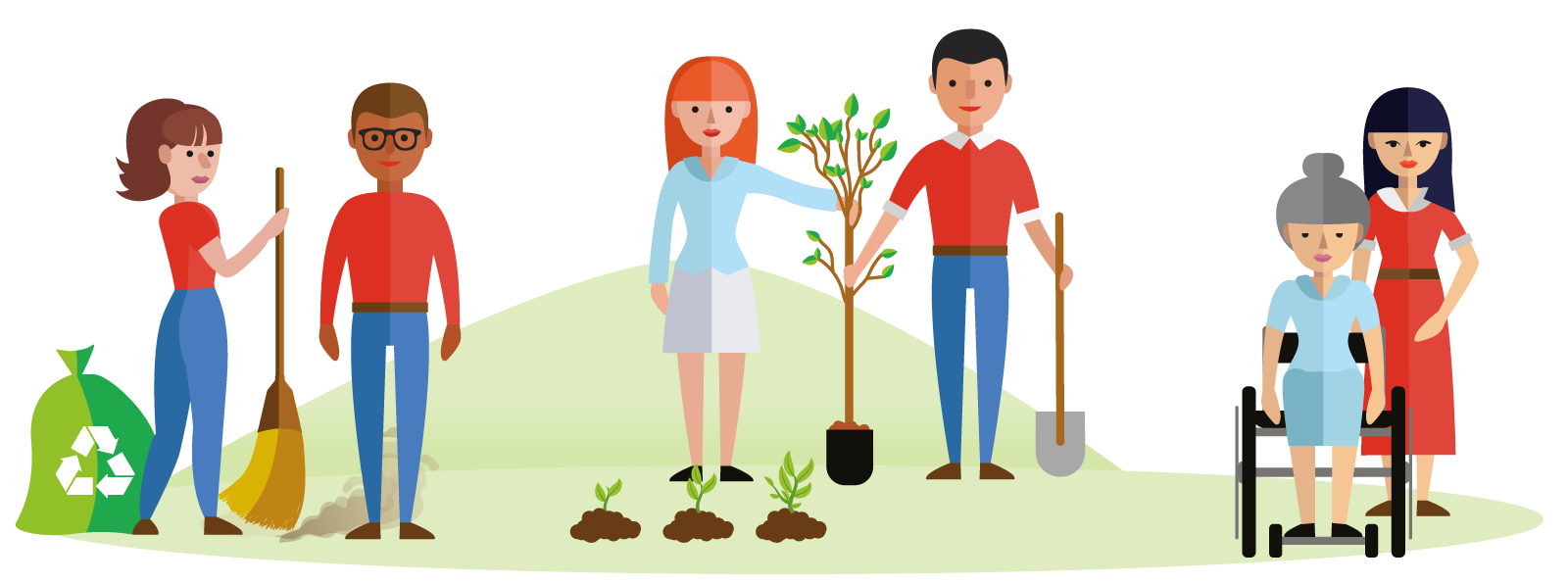
Case study
Walking healthy to contribute to society
TABLE FOR TWO (TFT) is a global initiative to fight food imbalance through a unique meal-sharing program. Established in Japan in 2007, it partners with corporations, restaurants, schools and other establishments to serve healthy meals. In Japan, we have been participating in the TFT program since 2010. The Company donates the equivalent of one meal to a developing country for every TFT meal purchased by employees at the cafeteria in Tokyo.
In light of COVID-19, employees have been working from home, and the use of the cafeteria has declined. However, we have found a new way to continue contributing to TFT, while encouraging employees to interact with each other and maintain their health at the same time.
In this new program, for each employee who walks at least 8,000 steps in a day, the Company donates one meal (20 yen). When we introduced this program in 2020, about 2,000 employees participated. In 2023, a total of 6,647 employees participated in the program in May and October, and we were able to donate 2,064,280 yen to TFT. As an added benefit, this program helped to build team spirit and interaction between colleagues, while also improving employee awareness and attitudes toward social contribution.
Feedback from employees on the walking challenge program
- 96% reported that volunteering changed their behavior such as increased volunteering or being a more vocal advocate of the company
- 58% reported that volunteering had a personal impact such as on their self-confidence, job satisfaction and pride in the company
- 65% reported that volunteering improved their job-related competencies such as communications, teamwork or leadership skills
